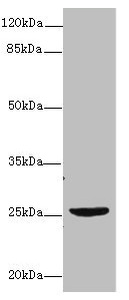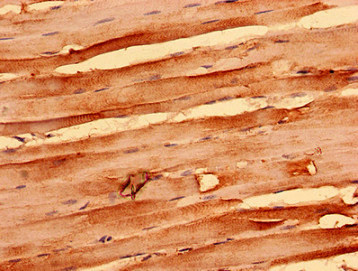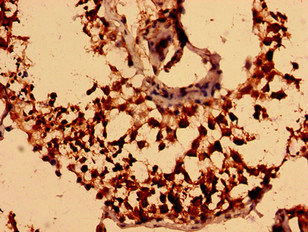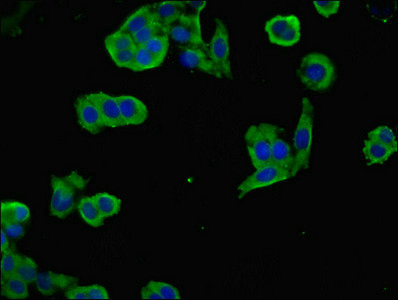Full Product Name
Rabbit anti-Homo sapiens (Human) NEGR1 Polyclonal antibody
Alternative Names
NEGR1 antibody; IGLON4 antibody; UNQ2433/PRO4993 antibody; Neuronal growth regulator 1 antibody; IgLON family member 4 antibody
Immunogen
Recombinant Human Neuronal growth regulator 1 protein (1-196AA)
Immunogen Species
Homo sapiens (Human)
Conjugate
Non-conjugated
The NEGR1 Antibody (Product code: CSB-PA015692LA01HU) is Non-conjugated. For NEGR1 Antibody with conjugates, please check the following table.
Available Conjugates
| Conjugate |
Product Code |
Product Name |
Application |
| HRP |
CSB-PA015692LB01HU |
NEGR1 Antibody, HRP conjugated |
ELISA |
| FITC |
CSB-PA015692LC01HU |
NEGR1 Antibody, FITC conjugated |
|
| Biotin |
CSB-PA015692LD01HU |
NEGR1 Antibody, Biotin conjugated |
ELISA |
Purification Method
>95%, Protein G purified
Concentration
It differs from different batches. Please contact us to confirm it.
Buffer
Preservative: 0.03% Proclin 300
Constituents: 50% Glycerol, 0.01M PBS, PH 7.4
Tested Applications
ELISA, WB, IHC, IF
Recommended Dilution
| Application |
Recommended Dilution |
| WB |
1:500-1:5000 |
| IHC |
1:20-1:200 |
| IF |
1:50-1:200 |
Storage
Upon receipt, store at -20°C or -80°C. Avoid repeated freeze.
Lead Time
Basically, we can dispatch the products out in 1-3 working days after receiving your orders. Delivery time maybe differs from different purchasing way or location, please kindly consult your local distributors for specific delivery time.
Description
The NEGR1 polyclonal antibody is raised in rabbits against the synthetic peptide responding to the amino acids 1-196 of the recombinant human NEGR1. It underwent protein G affinity chromatography purification and got a purity of 95%+. This NEGR1 antibody only reacts with human NEGR1 protein and has got quality verification in ELISA, WB, IHC, and IF applications. The recognition of the NEGR1 protein by this NEGR1 polyclonal antibody in multiple assays makes it valuable in investigating the function of the NEGR1 protein in experimental contexts.
Usage
For Research Use Only. Not for use in diagnostic or therapeutic procedures.










